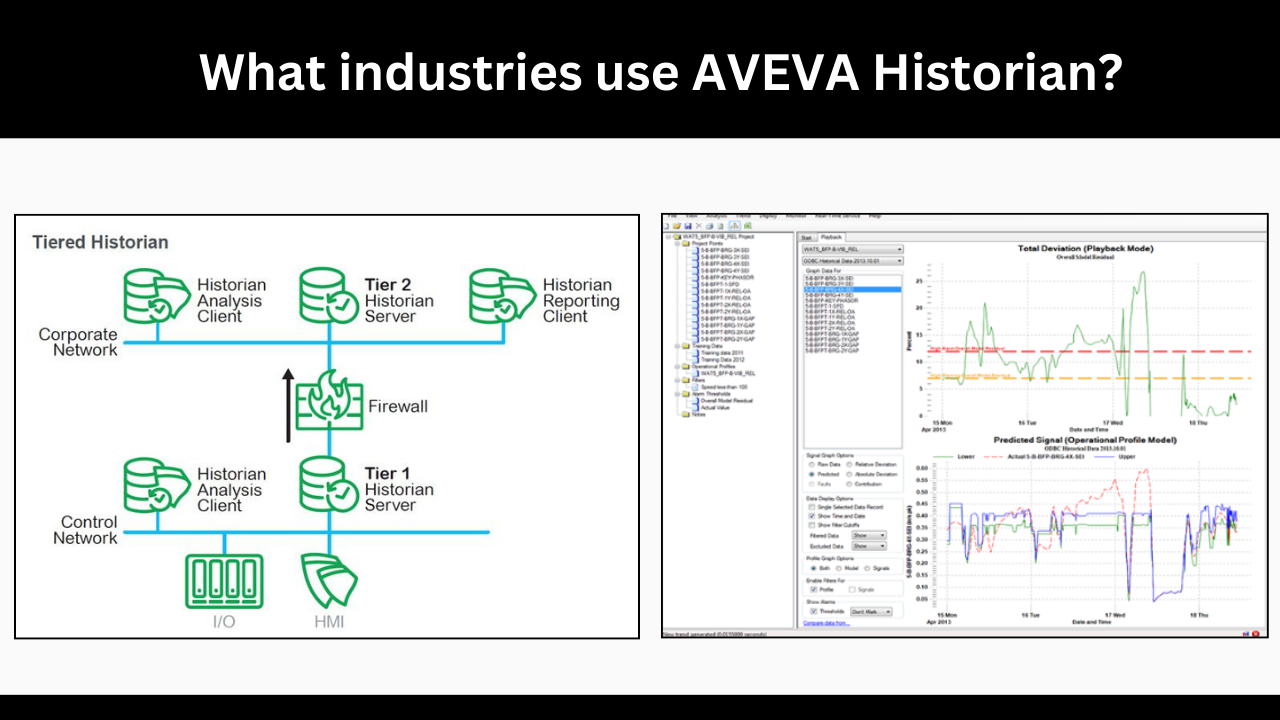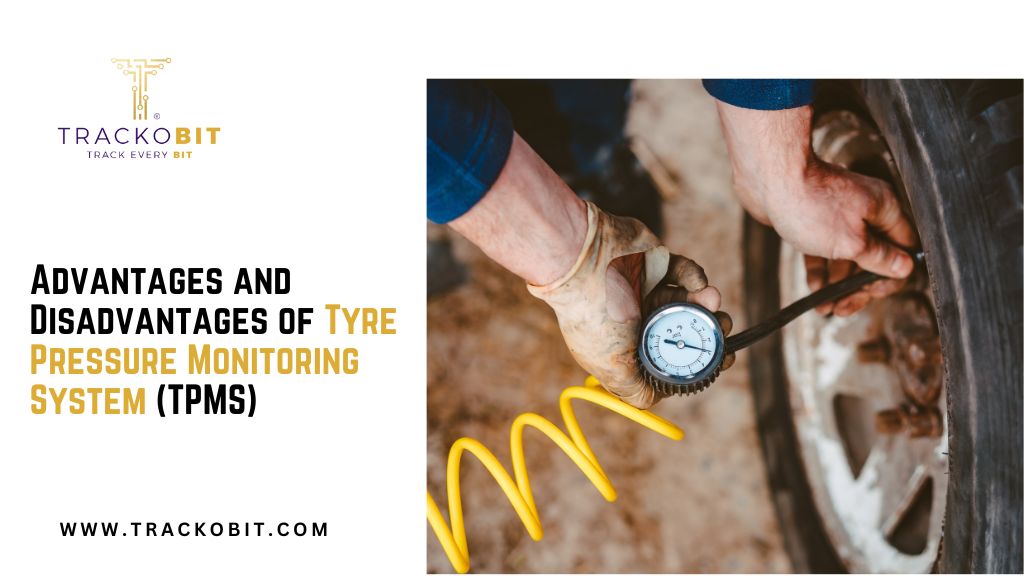A data historian programme called AVEVA Historian is extensively used in many different businesses that depend on gathering, storing, and evaluating substantial amounts of time-series data. AVEVA Historian finds use in several important industries, such of which are:
1. Oil and Gas:
used for operational data analysis, safety and compliance assurance, and manufacturing process monitoring and optimisation.
· Production Optimization: It supports the observation and enhancement of production processes, including reservoir management, well performance, and drilling activities. Operators may maximise production efficiency by making well-informed decisions based on previous data analysis.
· Asset Management: Pumps, compressors, and pipelines are examples of vital assets that are managed and observed using AVEVA Historian. It supports asset reliability, maintenance schedule optimisation, and equipment failure prediction.
· Safety and Compliance: The programme supports regulatory compliance requirements by ensuring that operational data is safely collected and maintained. Additionally, it makes it easier to monitor safety data in real time in order to avert accidents and guarantee worker safety.
· Environmental Monitoring: Environmental rules are strict when it comes to oil and gas industries. In order to maintain compliance with legal requirements, AVEVA Historian assists in tracking and reporting environmental indicators including emissions, water use, and waste management.
2. Manufacturing:
Used to assure product quality through data analysis, monitor equipment health, and increase production efficiency.
· Process Optimization: Manufacturers gather and examine process data in real time from equipment and manufacturing lines with AVEVA Historian. This information promotes efficiency, consistency in product quality, and manufacturing process optimisation.
· Quality Control: Manufacturers are able to track and evaluate information on dimensions, tolerances, and defect rates, among other product quality characteristics, thanks to the programme. This guarantees adherence to quality standards and facilitates the prompt detection and resolving of problems.
· Energy Management: The AVEVA Historian facilitates the tracking of energy usage in industrial processes. Manufacturers may optimise use patterns, find potential for energy savings, and lower total energy costs by analysing historical data.
· Asset Performance Management: Manufacturers rely on AVEVA Historian to monitor the health and performance of critical assets such as machinery and production equipment. Predictive analytics capabilities enable proactive maintenance, reducing downtime and improving asset reliability.
3.Pharmaceuticals:
Helps in maintaining process control, ensuring regulatory compliance, and optimizing manufacturing operations.
· Process Monitoring and Control: Pharmaceutical manufacturing involves complex processes where precise control is crucial for ensuring product quality and regulatory compliance. AVEVA Wonderware Historian collects real-time data from various stages of production, such as mixing, blending, and formulation, allowing for continuous monitoring and control.
· Batch Record Management: Pharmaceutical companies must maintain detailed records of production batches, including process parameters, raw material usage, and environmental conditions. AVEVA Historian helps in capturing and storing this data in a structured format, facilitating batch record management and compliance with regulatory requirements.
· Quality Assurance and Compliance: The software supports pharmaceutical manufacturers in maintaining rigorous quality assurance standards and complying with regulatory guidelines, such as Good Manufacturing Practices (GMP) and FDA regulations. It enables real-time monitoring of critical process parameters to prevent deviations and ensure product consistency.
4. Food and Beverage:
Helps in ensuring quality control, optimizing production processes, and complying with regulatory standards.
· Process Monitoring and Optimization: AVEVA Historian collects real-time data from various stages of food and beverage production, including mixing, cooking, packaging, and storage. This data is analyzed to optimize process parameters, improve efficiency, and maintain product consistency.
· Quality Control and Compliance: The software helps in monitoring critical quality parameters such as temperature, pH levels, and ingredient proportions. By maintaining strict control over these factors, food and beverage manufacturers ensure compliance with regulatory standards and deliver safe, high-quality products to consumers.
· Batch and Recipe Management: AVEVA Historian facilitates batch tracking and recipe management, ensuring consistency in product formulations and enabling quick adjustments to production schedules based on demand or ingredient availability.
5. Chemicals:
Helps in monitoring and optimizing chemical production processes, managing batch processes, and ensuring safety and compliance.
6. Water and Wastewater:
Used for monitoring and optimizing water treatment processes, managing distribution networks, and ensuring water quality.
· Process Monitoring and Control: AVEVA Historian collects real-time data from sensors and equipment throughout water treatment plants and distribution networks. This data is used to monitor process variables such as flow rates, chemical dosing, pH levels, and turbidity, ensuring that water quality meets regulatory standards and operational goals.
· Operational Efficiency: The software helps in optimizing the efficiency of water treatment processes by analyzing historical data trends and identifying opportunities for process improvements. This includes reducing energy consumption, optimizing chemical usage, and minimizing operational costs.
· Asset Performance Management: AVEVA Historian monitors the performance and health of critical assets such as pumps, valves, and filters. By analyzing historical maintenance data and real-time operational parameters, water utilities can implement predictive maintenance strategies to prevent equipment failures and reduce downtime.
7. Transportation and Infrastructure:
Helps in managing and optimizing transportation networks, monitoring infrastructure health, and ensuring operational efficiency.
· Asset Management: AVEVA Historian collects and analyzes real-time data from transportation assets such as bridges, tunnels, roads, railways, and airports. This data helps in monitoring asset health, predicting maintenance needs, and extending asset lifespan through proactive maintenance strategies.
· Operational Monitoring and Control: The software provides real-time monitoring of infrastructure systems, including traffic management, signaling systems, and operational performance metrics. This enables operators to make informed decisions to optimize traffic flow, enhance safety, and reduce congestion.
· Safety and Security: AVEVA Historian supports safety and security initiatives by monitoring critical infrastructure parameters such as structural integrity, environmental conditions, and security incidents. Real-time data analysis helps in identifying potential risks and implementing preventive measures to ensure public safety.
AVEVA Historian has cemented its place as a pivotal tool across numerous industries, offering robust data management, real-time analytics, and seamless integration capabilities. Its versatility is evident in its application across sectors such as manufacturing, energy, utilities, and pharmaceuticals, where it helps in enhancing operational efficiency, ensuring compliance, and driving innovation.




